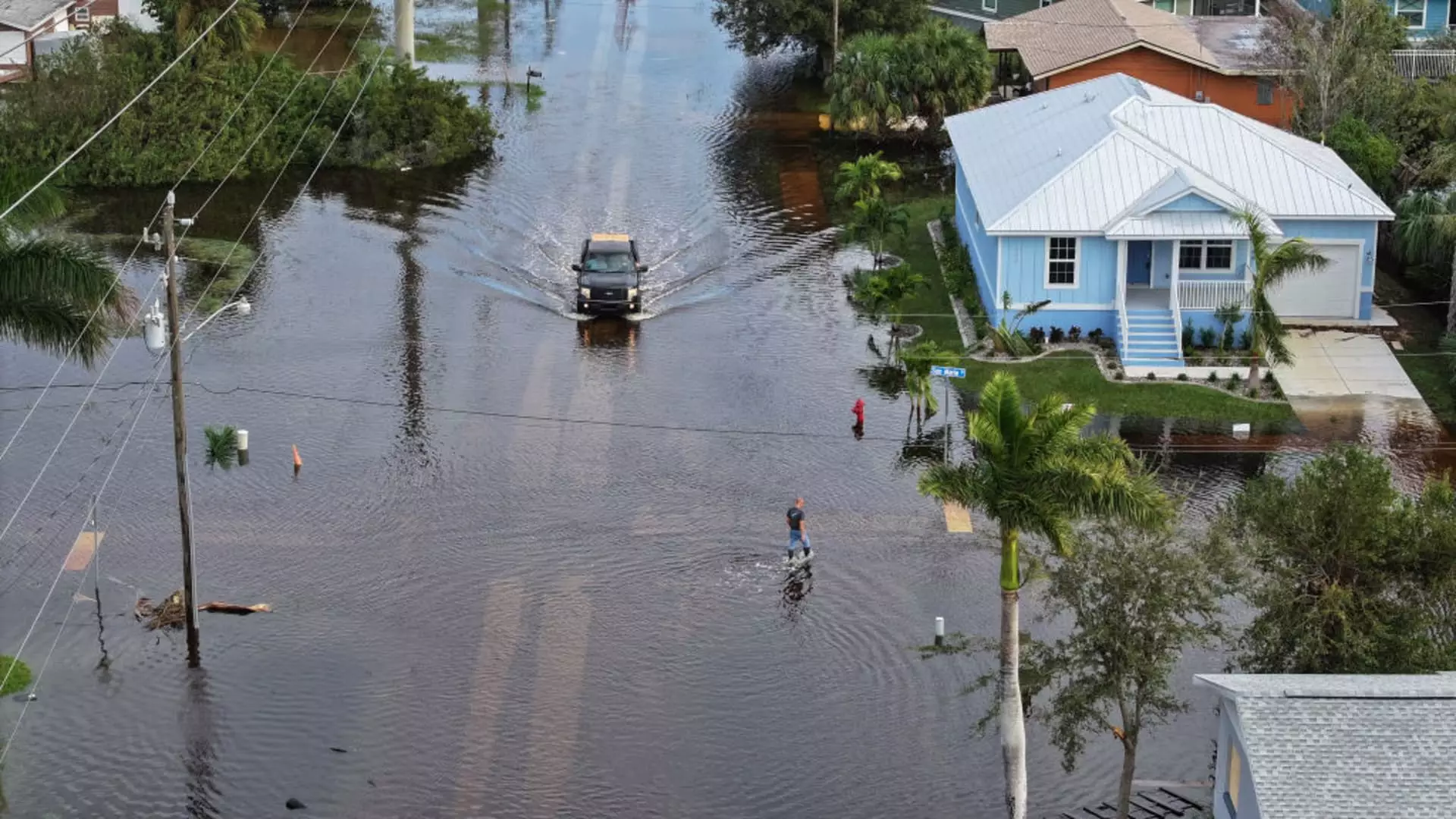As we enter the chaotic months of hurricane season, the urgency to prepare cannot be overstated. The National Oceanic and Atmospheric Administration (NOAA) has warned of a 60% likelihood of heightened hurricane activity in the Atlantic. It forecasts a staggering 13 to 19 named storms, with six to ten likely to develop into hurricanes. Among these, three to five may reach major hurricane status, bringing with them the potential for catastrophic destruction. Given these statistics, homeowners must act now to ensure that they are financially safeguarded against the inevitable storms.
The devastation that hurricanes can wreak is staggering—last year’s season alone resulted in an eye-watering $500 billion in damages and losses. For citizens living on the coasts and in vulnerable areas, this is not just another statistic; it’s a grim reality check. It’s a moment that serves as a wake-up call for all of us to reassess our existing insurance policies.
Understanding Your Coverage Limits: Don’t Be Left in the Lurch
The first critical aspect of your insurance policy that demands attention is the coverage limit. This limit represents the maximum amount your insurer will pay for covered damages, and it is essential that it reflects the true cost of rebuilding your home. With construction costs soaring—labor costs increasing by 36.3% over the past five years, and building materials rocketing by 42.7%—underinsurance has become a genuine concern for many. If you’ve not reviewed your policy recently, there’s a substantial risk that you could find yourself inadequately covered when disaster strikes.
For instance, if you own a 2,000 square-foot property and your local construction costs are $250 per square foot, then your policy should ideally have a limit of $500,000. Anything below this could leave you exposed, forcing you to absorb financial losses that should have been covered.
Deductibles 101: The Double-Edged Sword of Savings
Secondly, take a hard look at your deductibles—the amount you need to cover out-of-pocket before the insurer kicks in. While raising your deductible can lead to significant savings on your premium, it is a risky maneuver that can backfire in times of crisis. If you’re faced with storm damages and have opted for a $2,500 deductible to lower your monthly costs, will you be able to pony up that amount when the damage repairs are on the line?
This becomes even trickier with specialized wind deductibles, which may come into effect when dealing with hurricane-related damages. With these, the costs could be far greater than you anticipate, resulting in out-of-pocket payment that could reach the tens of thousands. Homeowners often overlook this aspect, but it is integral to a financially sound strategy when anticipating the potential consequences of a hurricane.
Flood Insurance: The Oversight That Could Cost You Everything
One of the biggest misconceptions about homeowners insurance is the assumption that it covers flood damage. It does not. With flooding responsible for 90% of disaster-related damages in the United States, as highlighted by FEMA, a separate flood insurance policy is essential. Even if you don’t live in a recognized flood zone, securing flood insurance can save you from catastrophic financial fallout.
Many homeowners find themselves caught off-guard during a crisis when they realize that coverage for flood-related damages is sadly absent from their standard policy. Experts, including Charles Nyce, urge homeowners to purchase flood insurance long before the hurricane season kicks off. Last-minute purchases are stymied by mandatory waiting periods, meaning you’re left exposed if you wait until a storm is imminent.
Proactiveness: Your Best Defense Against Disaster
Homeowners should make proactive preparations before the sky darkens and the winds pick up. This means putting together an emergency plan that includes an inventory of your possessions and evaluating your insurance coverage thoroughly. Consider gathering essential supplies, such as water, batteries, and non-perishable food items. An organized response now can mean your peace of mind later.
Home insurance, just like financial freedom, is often overlooked until it’s too late. The reality is clear: the impending hurricane season demands action. Homeowners cannot afford to remain passive or complacent in the face of such real danger. Gathering the right information, seeking educated advice from professionals, and maintaining a vigilant approach to policy assessments are less about caution and more about empowering oneself in the face of nature’s wrath.
In a world where disasters can strike unexpectedly, being adequately covered isn’t just advisable—it’s imperative.


Leave a Reply